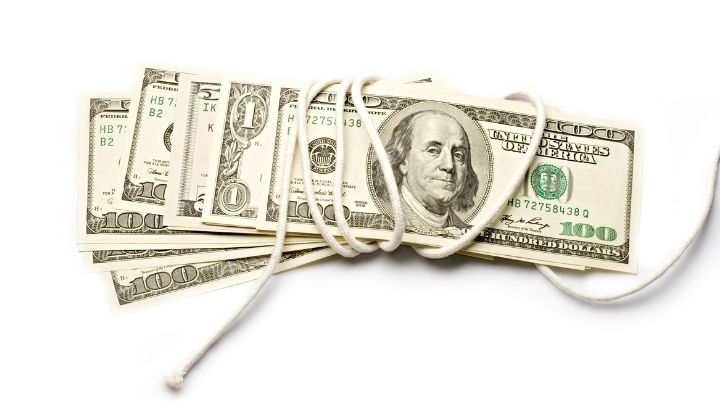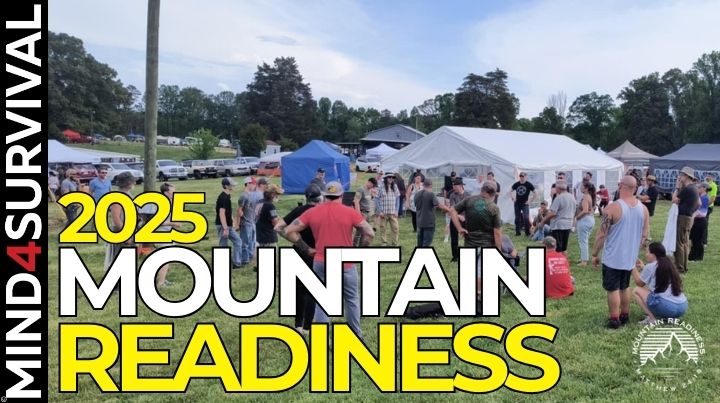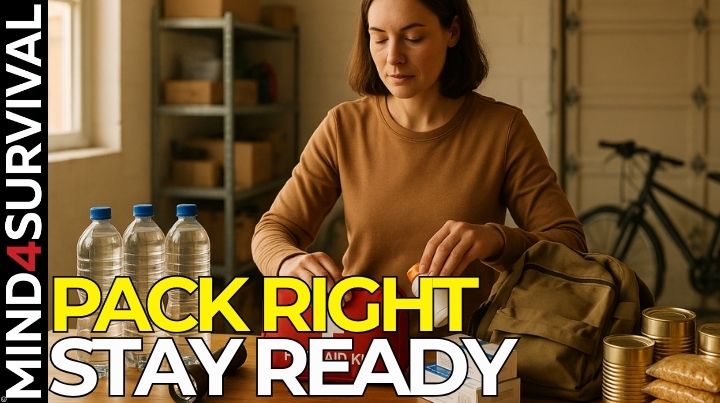Prepping on a Shoestring Budget Really IS Possible

Many people believe that prepping on a shoestring budget is impossible. They have the misconception that preparedness requires a lot of money.
Because of this misunderstanding, some choose not to prepare at all. After all, why spend money on something that may or may not happen? Fortunately, there are many ways to improve your preparedness that are either free or do not require a lot of money.
Here are some ways to get started, even if you're prepping on a shoestring budget.
Take It One Step at a Time
The preparedness mindset can often be overwhelming to the novice prepper. All it takes is just one Google search to be inundated with predictions of the end of the world as we know it (aka TEOTWAWKI). Fortunately, throughout history, these projections have mostly proven to be false. Equally as fortunate is that most current and future doom and gloom predictions will likely be determined wrong.
This good news means that the odds of a cataclysmic event significantly impacting you are not very likely. However, just as with purchasing insurance, you prep for those times when the odds catch up with you. It only makes sense to get prepared even if you are prepping on a shoestring budget.
So forget those doom and gloom predictions. Don't get overwhelmed by the checklists. Take it one careful step at a time. When you do, every prep completed will bring you one step closer to being truly prepared.
The Importance of Information
Knowledge is just as necessary as material items. After all, what good is any piece of equipment if you don’t know how to use it? As well, it takes up no physical space, and as Ray Mears says, “Knowledge is the key to survival, the real beauty of that is that it doesn't weigh anything.”
Fortunately for everyone, there are volumes of free information on the internet. So when you're prepping on a budget, take advantage of the free resources available to you, such as this blog. Free information will also provide you with alternatives to many of the costlier preparedness hurdles. The information is there for the taking, so use it to your advantage.
Be sure to be careful where you get your prepping advice. Not all sites offer sound strategies. If you notice that the focus is on fear, look elsewhere for your information.
Planning Your Preparedness Strategy Saves Money
When people first begin preparing, many try to do everything at once. Doing everything at once becomes frustrating because they don’t have the time or money to accomplish everything.
You need to think about and plan a preparedness strategy. By doing so, you will be able to prepare more efficiently. In turn, the increased efficiency will allow you to prepare more quickly and at less cost than would have otherwise been possible.
If you're prepping on a shoestring budget, focus on taking things step by step.
Inventory Your Supplies
You may already have a lot of supplies and not realize it. You must take stock of what you have. By inventorying your supplies, you can avoid buying duplicates.
Avoiding those items keeps costs down and lets you focus on the things you do not yet have. Listing your supplies requires physically going through what you have, and this also increases your familiarity with them.
Know Your Budget
It's impossible to stick to a budget if you don't know how much you have to spend.
Do a quick personal audit by analyzing your income and expenses and setting a budget. Once you have a budget figured out, you’ll be able to calculate how much you can spend on your preparedness.
Even if you are prepping on a shoestring budget, there are many ways that you can save extra money. If not already doing so, you can consider using coupons or shop in discount and second-hand stores. Honestly, think about your needs over your wants. Remember, going into debt when preparing is not the answer. Going into debt reduces your freedom and forces you to take a step away from your goal instead of toward it.
Here are some small changes you can make to save significant amounts of money you can put toward prepping.
Food Preps
Commercial survival foods are convenient to have, but they're costly and unnecessary. When starting, especially if you're prepping on a shoestring budget, those buckets of freeze-dried survival foods may not be the best option.
Instead, when buying food items that you usually eat, purchase extra. A few extra cans of food each week will quickly multiply into a massive food stockpile. When using this method, it is essential to eat and rotate what you buy. Ideally, you should eat the items that are expiring the soonest.
Here are some tips on building a budget-friendly three-layer food supply.
Water Preps
Water is one of life’s necessities. Therefore, you should try to store as much as possible. By saving your used drink bottles, you can store up a decent amount of emergency water. Just make sure before filling the container that you thoroughly wash them. Once refilled, store the bottles in a dark place, such as a cupboard, closet, or basement. Water stored this way should be used, rotated, and replaced every six months. Here is some more detailed advice on building a long-term water storage supply.
It would help if you also considered buying water filters, which you will need should you exhaust your water supply. The water filter will aid with removing impurities and bacteria if you must refill your water from a questionable source.
Shelter Preparedness
When it comes to housing, there are many options. The first choice is where you live. Whenever the situation permits, remain in your home. You’re already paying for it, and this is where you are most comfortable and established, so take advantage of it.
Next, you should have some secondary shelter ready, should you have to leave your home. This shelter can be your car, a tent, a tarp, etc. Ultimately, you’ll need something to keep you out of the elements and provide as much comfort as possible. Doing so can be done inexpensively, such as buying a $10 tarp rather than a $100 tent.
Light Preparedness
In the event you lose power, you will need a dependable light source. The good news is that LED flashlights are now affordable and last longer than before. Remember, flashlights require a power source. So, don’t forget spare batteries or buying flashlights that are powered by alternative means.
Solar garden stake lights can be left outdoors along your sidewalk all day long, then brought inside during an emergency to light up your rooms by placing them in a vase or Mason jar. You can easily find solar garden lights at the dollar store in the spring and summer.
Aside from flashlights, candles are also affordable sources of light. When buying candles, avoid purchasing scented ones. You’ll find unscented tend to be less expensive. When purchasing candles, don’t forget to pick up lighters, matches, or something else to get your candles, stove, and fire lit.
The Bottom Line of Prepping on a Shoestring Budget
These are just a few ideas for prepping on a tight budget. The key to all this is to avoid being overwhelmed at the beginning.
Odds are, TEOTWAWKI won’t happen tomorrow, next month, or next year. Stay the course, gather reliable information, and make solid plans. Once you do, you will be on your way to improving your preparedness one step at a time. Each step you take will put you one step closer to being prepared.
What are your favorite budget-friendly prepping tips for beginners? How do you prep on a dime? Share your ideas in the comments.
Additional Resources:
Stay safe,

Related Articles
FREE Guide
Read the Best Seller
Join Mind4Survival
Stay informed by joining the Mind4Survival! 100% Secure! 0% Spam!
Affiliate Disclosure...
Mind4Survival is a free, reader-supported information resource. If you make a purchase through our link, we may, at no cost to you, receive an affiliate commission.
Do You Want To Be Ready No Matter What?

Download our free 39-page guide with interactive, 7-Day Emergency Kit Checklist and take the first step toward real preparedness.
- Know exactly where to start.
- Save time and money.
- How-to build a complete Basic Emergency Kit.
- Level up your safety and security.
Join Mind4Survival
Stay informed by joining the Mind4Survival! 100% Secure! 0% Spam!






Great read Brian!
Knowledge is definitely as important as tools in my opinion, if not more important!
Thanks for your feedback Adam! ~Brian